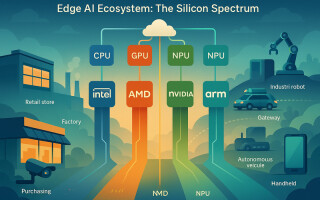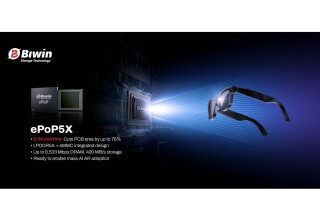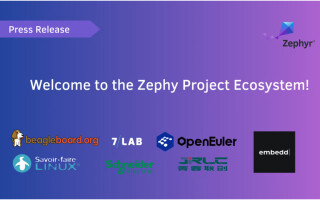Road to embedded world ’23: Lahore, Pakistan, Rapid Silicon
March 08, 2023
News
Rapid Silicon is joing embedded world 2023 delivering the best FPGAs. Located at hall 4 booth 665, Rapid Silicon respectively brings 50% lower power, lower total cost, and innovative modern features needed to build out the intelligent edge.
It aims to democratize FPGAs and SoCs by wholly adopting open source, from silicon to software, to build transparency and a thriving ecosystem that can keep pace with users varying demands.
Rapid Silicon's Raptor EDA software is the industry's first and only commercial open-source development environment, while all Rapid Silicon devices are built using OpenFPGA.
Telecom

The telecom industry faces many design challenges due to rapidly evolving technology and standards. 5G deployments in multitude of use cases brings about a need to develop different equipment to address different needs.
FPGA technology plays a vital role in advancing new applications in telecom due to its high bandwidth, low-latency, and time to market advantages. Rapid Silicon’s solutions are ideally designed for data transmission and conversion, bridging protocols, and packet processing. They are optimally designed for wireless and wireline technologies such as remote radio heads, base stations, backhaul, routers, switches, and gateways.
Industrial

The Industry 4.0 revolution is unleashing a smarter, more connected world, and FPGA technology enables the high bandwidth and real-time processing requirements these applications demand at the edge.
The use of FPGAs is growing and expanding in new applications such as robotics, computer vision inspection, and predictive maintenance while continuing to maintain a key role in more traditional applications such as motor control and industrial networking. FPGAs’ flexibility allows a single board or system to be customized to accommodate many varying and machine-specific protocols to meet the end-user requirements.
Automotive

Autonomous driving and Advanced Driver Assistance Systems (ADAS) require complex compute and sensor fusion capabilities. Rapid Silicon’s FPGAs aggregate input from sensors and monitors using a variety of in-vehicle communication protocols that are optimized for ADAS applications.
Infotainment applications such as navigation systems, headrest-mounted displays, smartphone integration, in-vehicle Wi-Fi, and vehicle performance management and monitoring all benefit from the flexibility and re-programmability of FPGAs.
Data Processing

Data processing applications span a variety of industries and require high-performance parallel processing capabilities including data ingress and egress, signal processing, packet processing, video processing, compression and decompression, encryption, and more.
FPGAs are playing an increasingly important role in enabling these applications due to their performance, parallel processing, low latency, sophisticated networking and memory capabilities and flexibility. The array architecture of FPGAs, and the abundance of I/Os to pass data upstream or downstream efficiently, makes them ideal for the compute and data movement and processing for these applications.
For more information, visit rapidsilicon.com.





